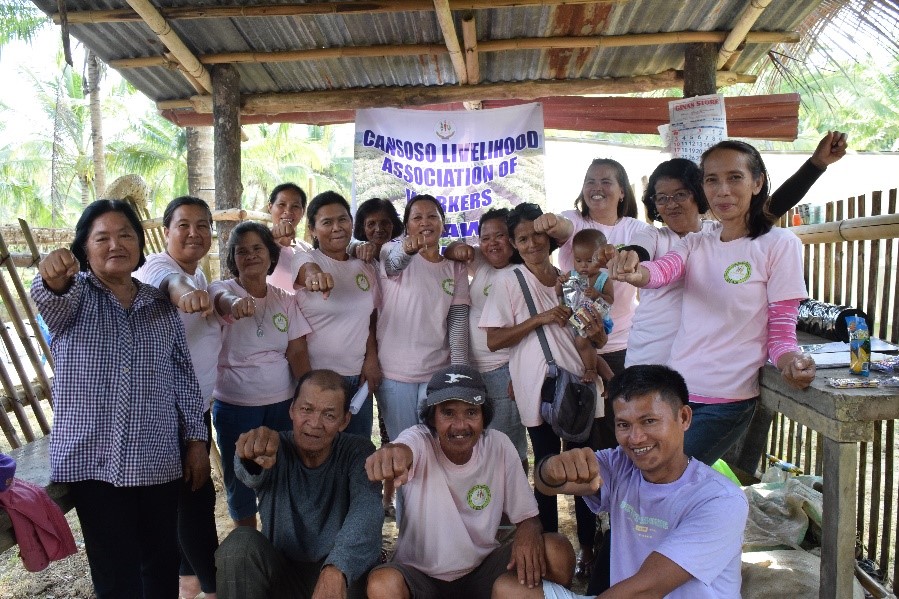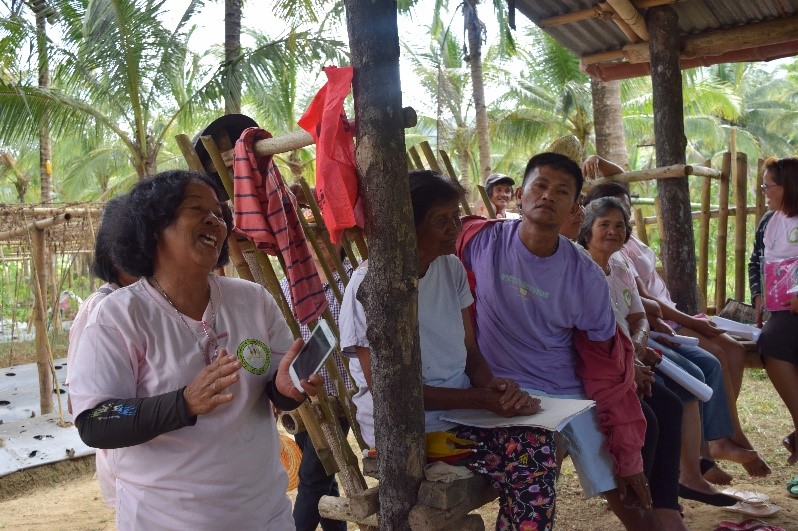There is a group of happy women who bonded together to form an association that goes by the name, CLAW, which stands for Cansoso Livelihood Association of Workers. Based from the data of Barangay Cansoso, Matag-ob, Leyte, the group (consisting mostly of housewives who are also DSWD 4Ps members) grows assorted high-value crops which are ampalaya, pipino, string beans, onions, and others – in a 2,000 square meter lot.
The idea of organizing women came from the Municipal Agriculturist of the locality who saw an opportunity to allow willing women to engage in a livelihood project. The concept was supported by the lot owner and concurrent President of CLAW, Ms. Loretta S. Avorque. The group has (20) members and they have submitted the requirements for the Department of Labor and Employment (DOLE) registration. On April 23, 2018, the group was accredited.
This is how it happens. Each member of the group paid a registration fee of 500.00 and a monthly due of P10.00. It started as a lending venture and subsequently evolved into a thriving farming enterprise that brought joy to the members, especially after harvesting and selling their produce from the first production cycle and earning substantial income from it.
The Special Area for Agricultural Development (SAAD) Program provided four units each of wheelbarrow, bolo, garden tools (set), plastic mulch (roll), and 10 sacks organic fertilizer, while the assorted seeds came from the Office of the Municipal Agriculturist (OMA) Matag–ob.
Each member attended a three–day Vegetable Production Training facilitated by the program and the OMA. Their learnings from that capacity enhancement activity was applied in their actual gardening practice. The members manufacture their own carbonized rice hull to fertilize the garden plots.
They rented a multi–cultivator at 1,500.00 per day using the association’s fund.
The production data submitted by the association to the PPMSO-Leyte on March 22, 2019, showed the group’s aggregate income of P70,239.00. The vegetables were sown on November 26, 2018, to an average area of about 200 square meters. Each member tilled their own garden plot and was responsible for its cultivation and maintenance.
Ms. Frumencia A. Aras, became the highest earner, with a gross income of P9,300.00 for having sold 155 kilograms of ampalaya at a farm–gate price of P60.00 per kilo.
There are fifteen (15) members of the group who continuously work fulltime at the communal farm, while some opted to grow their vegetable crops at their own backyard. The latter earned less because some produced only for family consumption. As agreed by the members themselves, the quarter gross income is allocated for lot rental and another quarter goes to the association funds.
The tangible returns of the project include financial independence for individual members, (which means no longer depending on kin for maintenance medicines), nutritional and educational support for their children, and sustainability of livestock and farm animal production. The intangibles came in the form of camaraderie, goodwill, and harmonious relationships with fellow members, as well as the staff of OMA who continuously support CLAW through regular monitoring, mentoring, and handholding.
The association plans to engage in a viable hog raising project in the future, acquire a vehicle to transport their products to the Poblacion, neighboring markets and as far as Ormoc City where the vegetables sold at better prices. They are also soliciting funds from the program and the Local Government Unit (LGU) for the construction of a water system from a distant source to the farm site. ###
Writer: Michael F. Dabuet, SAAD RPMSO 8 Information Officer
Copy Editor: Jennifer A. Valcobero, SAAD NPMO PR and Communications Officer
Originally published on Peryodikit – Special Area for Agricultural Development Program (DA-SAAD) RFO VIII Official Publication



Comments (0)